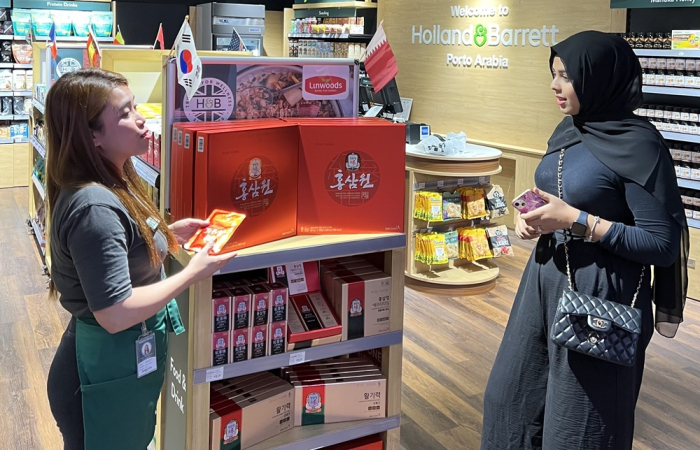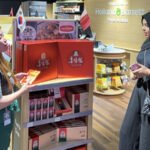
South Korea’s exports of health functional food or health supplements have surged sharply in recent months, fueled by Chinese millennials and Gen Z eager to emulate the looks and lifestyles of K-pop idols.
Exports of products such as red ginseng tonics, vitamins and omega-3 capsules reached $43.9 million in the first 20 days of September, up 40.2% from a year earlier, according to Korean alternative data platform KED Aicel Friday.
The jump marks an acceleration from a 1.6% rise in May and a 26.5% increase in August.

China has led the growth.
Korean supplement shipments to the country totaled $57.1 million in the third quarter to Sept. 20, up nearly 65% from a year earlier.
That represents one-third of Korea’s overall health supplement exports of $176.3 million during the same period.
The upturn comes after steady expansion in recent years.
Korea’s outbound shipments of health supplements have nearly doubled in five years to $683 million last year from $345 million in 2019.

EXPORTS OF GINSENG SOAR
Korean brands such as tobacco maker KT&G Corp.’s health food subsidiary Korea Ginseng Corp. (KGC), best known for its Hong Sam Won red ginseng drink, have benefited.
Exports of Hong Sam Won to China jumped 158% in 2024 from the previous year.
Original design manufacturer (ODM) suppliers such as Novarex Co., Kolmar BNH Co. and Suheung Co. have also seen record overseas sales, often through partnerships with global brands.
Novarex, which produces for US group GNC, posted an 81% year-on-year rise in second-quarter exports to 46 billion won ($34 million).
The surge is being driven by younger Chinese consumers shopping via e-commerce platforms such as Alibaba-owned Taobao and Tmall.

According to a Chinese consulting firm, beauty-related nutritional supplements sold through Taobao and Tmall reached 13.1 billion yuan ($2.6 billion) in 2023, up 22% from the previous year.
China’s overall health supplement market stood at 347.5 billion yuan last year, according to Chinese research institutes.
Global research firm MarketsandMarkets forecasts that China’s overall health supplement market will grow 8.3% annually through 2028.
THE CHINESE REGARD KOREAN HEALTH FOOD AS SAFE
Analysts said Korea is well-positioned to capitalize, thanks to both perceptions of safety and the cultural halo of K-pop.
A KOTRA survey of 401 Chinese consumers found that 83% of the respondents in their 20s considered Korean supplements “highly safe,” compared with 67% among those in their 30s.

One in five cited Korean popular culture as a reason for purchasing.
Korea ranked fourth among China’s health supplement import sources in 2024, with shipments worth $267 million, a 19% increase from the previous year, overtaking New Zealand and the Netherlands.
In 2024, China imported a total of $61 billion in health function foods, up15.8% from the previous year.
“Generational change and the shift to e-commerce are reshaping China’s health supplement market,” said Park Sun-young, research fellow at the Korea Investor Relations Service. “For Korean companies, rapid adaptation in product development and marketing will be essential.”
By Tae-Ho Lee
thlee@hankyung.com
In-Soo Nam edited this article.















